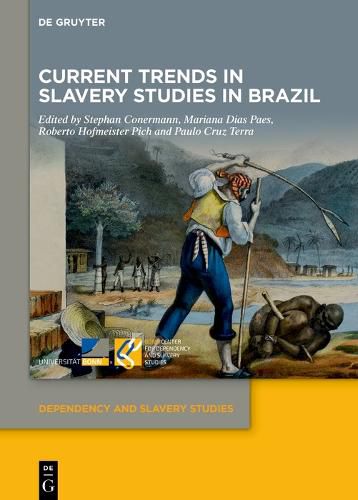Readings Newsletter
Become a Readings Member to make your shopping experience even easier.
Sign in or sign up for free!
You’re not far away from qualifying for FREE standard shipping within Australia
You’ve qualified for FREE standard shipping within Australia
The cart is loading…






This title is printed to order. This book may have been self-published. If so, we cannot guarantee the quality of the content. In the main most books will have gone through the editing process however some may not. We therefore suggest that you be aware of this before ordering this book. If in doubt check either the author or publisher’s details as we are unable to accept any returns unless they are faulty. Please contact us if you have any questions.
African slaves were brought into Brazil as early as 1530, with abolition in 1888. During those three centuries, Brazil received 4,000,000 Africans, over four times as many as any other American destination. Comparatively speaking, Brazil received 40% of the total number of Africans brought to the Americas, while the US received approximately 10%. Due to this huge influx of Africans, today Brazil's African-descended population is larger than the population of most African countries. Therefore, it is no surprise that Slavery Studies are one of the most consolidated fields in Brazilian historiography. In the last decades, a number of discussions have flourished on issues such as slave agency, slavery and law, slavery and capitalism, slave families, demography of slavery, transatlantic slave trade, abolition etc. In addition to these more consolidated fields, current research has focused on illegal enslavement, global perspectives on slavery and the slave trade, slavery and gender, the engagement of different social groups in the abolitionist movement or Atlantic connections. Taking into consideration these new trends of Brazilian slavery studies, this volume of collected articles gives leading scholars the chance to present their research to a broader academic community. Thus, the interested reader get to know in more detail these current trends in Brazilian historiography on slavery.
$9.00 standard shipping within Australia
FREE standard shipping within Australia for orders over $100.00
Express & International shipping calculated at checkout
This title is printed to order. This book may have been self-published. If so, we cannot guarantee the quality of the content. In the main most books will have gone through the editing process however some may not. We therefore suggest that you be aware of this before ordering this book. If in doubt check either the author or publisher’s details as we are unable to accept any returns unless they are faulty. Please contact us if you have any questions.
African slaves were brought into Brazil as early as 1530, with abolition in 1888. During those three centuries, Brazil received 4,000,000 Africans, over four times as many as any other American destination. Comparatively speaking, Brazil received 40% of the total number of Africans brought to the Americas, while the US received approximately 10%. Due to this huge influx of Africans, today Brazil's African-descended population is larger than the population of most African countries. Therefore, it is no surprise that Slavery Studies are one of the most consolidated fields in Brazilian historiography. In the last decades, a number of discussions have flourished on issues such as slave agency, slavery and law, slavery and capitalism, slave families, demography of slavery, transatlantic slave trade, abolition etc. In addition to these more consolidated fields, current research has focused on illegal enslavement, global perspectives on slavery and the slave trade, slavery and gender, the engagement of different social groups in the abolitionist movement or Atlantic connections. Taking into consideration these new trends of Brazilian slavery studies, this volume of collected articles gives leading scholars the chance to present their research to a broader academic community. Thus, the interested reader get to know in more detail these current trends in Brazilian historiography on slavery.